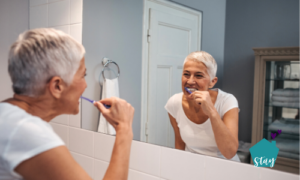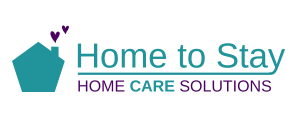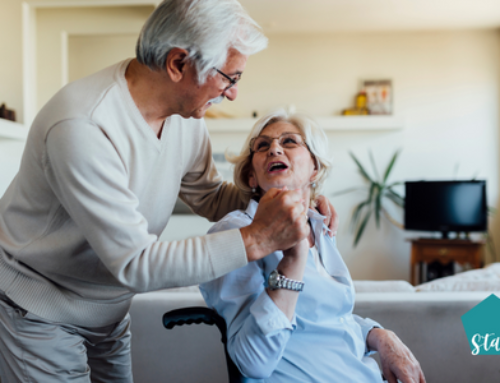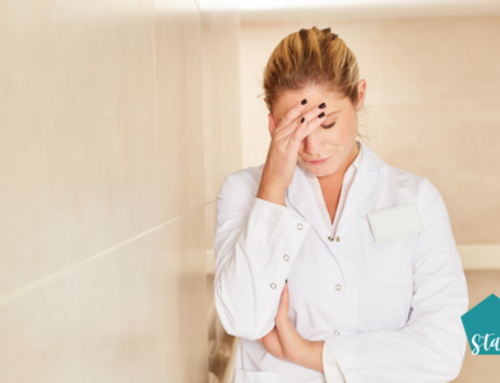 Personal care is something that parents tend to instill in their children from a young age. Even toddlers learn the importance of washing their hands, brushing their teeth, and bathing regularly. As you get older the skills that you use to take care of yourself increase. You learn the importance of taking care of all of the different aspects of your body and the different elements of hygiene and grooming. They become valuable to your self-esteem and self-confidence, as well as your health. As seniors get older, however, they may not be as capable of handling these personal care needs. They may struggle with challenges and limitations that make it more difficult for them to manage the actual tasks, or cognitive decline that makes it so that they do not remember that they need to do these things or how to do them. When this happens your parent can be at risk of health problems as well as social withdrawal, reduction in self-confidence, and other issues related to poor hygiene and grooming.
Personal care is something that parents tend to instill in their children from a young age. Even toddlers learn the importance of washing their hands, brushing their teeth, and bathing regularly. As you get older the skills that you use to take care of yourself increase. You learn the importance of taking care of all of the different aspects of your body and the different elements of hygiene and grooming. They become valuable to your self-esteem and self-confidence, as well as your health. As seniors get older, however, they may not be as capable of handling these personal care needs. They may struggle with challenges and limitations that make it more difficult for them to manage the actual tasks, or cognitive decline that makes it so that they do not remember that they need to do these things or how to do them. When this happens your parent can be at risk of health problems as well as social withdrawal, reduction in self-confidence, and other issues related to poor hygiene and grooming.
Some indications that your aging parent may need help with hygiene and grooming include:
- Hair that is not characteristically cared for, such as growing to an unacceptable length, being oily, or not being styled in the way that they always styled it.
- A senior who has always worn makeup no longer wearing makeup or not wearing it in the way that they always have.
- Excessive body odor indicating that they have not bathed recently or that they are not bathing as often as they should.
- Dirty fingernails or fingernails that are not properly maintained.
- Bad breath.
- Other signs of dental health issues such as bleeding of the gums when eating crunchy or hard food, difficulty swallowing, or complaining of pain in the teeth.
- A senior who has always been clean shaven having facial hair that indicates they have not shaved recently.
- Wearing clothing that is not seasonally appropriate or is stained, torn, wrinkled, or otherwise obviously dirty.
- Increased illness or infection that could indicate that they are not practicing adequate germ control measures such as washing their hands.
- Skin that is thinner or that is showing signs of damage such as tears, scrapes, or abrasions. This could indicate that their skin has become thinner and more vulnerable due to lack of proper moisture and cleansing.
The tasks of personal care are often sensitive in nature. Seniors tend to be more modest than younger generations, meaning that your parent may be uncomfortable with the idea of you helping them with these sorts of tasks. If this is the case, or if you are not comfortable with or physically capable of handling their care tasks, elder care may be the ideal solution. An elderly home care services provider can step in to fulfill these care needs in a personalized, respectful way that maintains your parent’s dignity and encourages them to stay as independent as possible by modifying tasks so that they can do them on their own.
For elder care in Southern NJ, and the surrounding areas call and talk to us at Home to Stay Healthcare Solutions (856) 321-1500.







